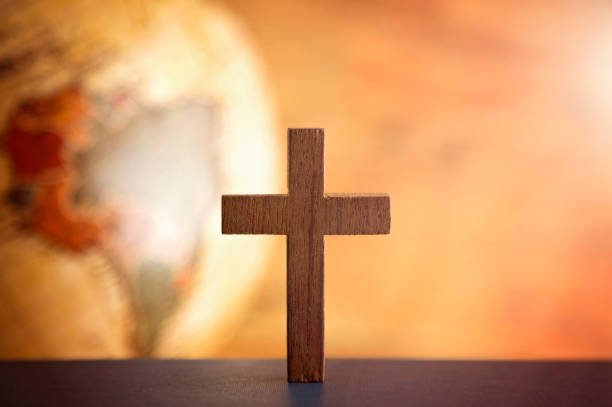“And I tell you that you are Peter, and on this rock I will build my church, and the gates of Hades will not overcome it.”
(Matthew 16:18)
The Christian Church has gone through many changes over the centuries, and each season in history has shaped how believers follow Christ today.
From the early followers of Jesus to the modern worldwide Church, many things have happened that still affect the faith, worship, and beliefs of Christians in the United States and across the world.
The Early Church and the Apostles
After Jesus rose from the dead and returned to heaven, His followers began to spread the message of salvation throughout the Roman Empire.
The book of Acts in the New Testament records how the apostles preached, healed the sick, and planted churches in many cities.
During this time, Christians faced much trouble, including being arrested and even killed for their faith.
Still, the Church grew stronger because of their courage and faith.
“They never stopped teaching and proclaiming the good news that Jesus is the Messiah.”
(Acts 5:42)
The Council of Nicaea (AD 325)
As Christianity spread, questions came up about the nature of Jesus and His relationship with God the Father.
To help bring unity, the Roman Emperor Constantine called leaders from different churches to gather at the Council of Nicaea.
This meeting led to the creation of the Nicene Creed, which is still used in many churches today.
The creed explains that Jesus is truly God and not just a man or a created being.
“In the beginning was the Word, and the Word was with God, and the Word was God.”
(John 1:1)
The Rise of the Roman Catholic Church
As the centuries passed, the Church became closely connected to government and kings, especially in the West.
The Bishop of Rome became more powerful and was called the Pope, leading to the growth of the Roman Catholic Church.
During this time, the Church helped protect and teach the Bible, even as most people could not read it for themselves.
Monasteries and churches became centers of learning, prayer, and help for the poor.
“Preach the word; be prepared in season and out of season; correct, rebuke and encourage—with great patience and careful instruction.”
(2 Timothy 4:2)
The Protestant Reformation (1500s)
In the 1500s, a German monk named Martin Luther spoke out against problems in the Roman Catholic Church, including the selling of forgiveness and the lack of Bible reading in everyday language.
He believed that salvation comes by faith in Jesus alone and not by good works or money.
This led to the Protestant Reformation, which caused the Church in the West to divide into Roman Catholic and Protestant groups.
The Bible was soon translated into many languages, so people could read God’s Word for themselves.
“For it is by grace you have been saved, through faith—and this is not from yourselves, it is the gift of God.”
(Ephesians 2:8)
The Modern Missions Movement
In the 1700s and 1800s, Christians in Europe and America began sending missionaries to other countries to share the gospel.
People like William Carey, Hudson Taylor, and Lottie Moon left their homes to tell others about Jesus in places where the Bible was not known.
This led to churches being started all around the world and the Bible being translated into many new languages.
Today, Christians in many nations share their faith and help others know about the love of God.
“Go therefore and make disciples of all nations, baptizing them in the name of the Father and of the Son and of the Holy Spirit.”
(Matthew 28:19)
The history of the Church shows how God has worked through people in many different times and places.
While the Church has made mistakes, it has also brought light, truth, and hope to the world through Jesus Christ.
Each moment in this history teaches us something about God’s faithfulness and the importance of holding on to His Word.

